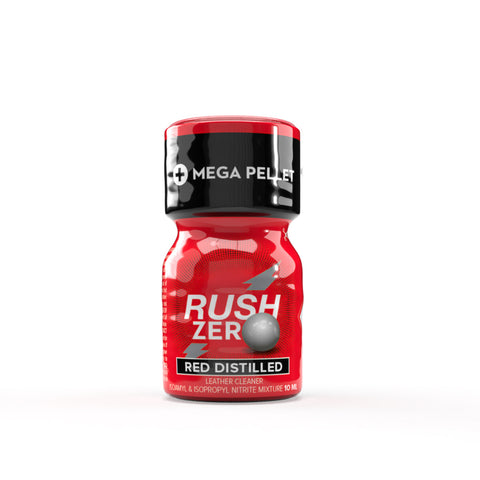Do Poppers Expire?
Yes! While poppers aren’t a consumable they do expire over time. With a seal still intact before first opening a bottle, poppers can last a number of months. Once that seal is broken however, the clock will start ticking. From that point on yours poppers will last anywhere between one to three months. How long yours last will depend on how well you store and use your poppers. In this guide we’ll talk you through what can be done to stop your poppers from expiring too fast, and what to look out for when they’re past their prime.
Making your poppers last longer
There’s a few things you can do to ensure your poppers stay fresh for as long as possible. We go through these in detail in our previous blog post, How to make poppers last longer, but we’ll summarise the points here as well!
The most important thing is to make sure your poppers are stored upright. Poppers are naturally corrosive and you don’t want a leak developing through the lid. For the same reasons, you want to ensure the lid is back on tight after each use. Don’t leave the bottle without a lid for any longer than you need to as exposure to oxygen evaporates your poppers.
Next, sunlight. Sunlight will speed up the breakdown of the important molecules in your poppers. The orange glass used to store poppers does a lot of the heavy lifting here, but you’ll also want to store them somewhere away from direct sunlight, like a cupboard or the fridge.
Speaking of fridges, you want to store your poppers somewhere cool as well. In more temperate and colder countries, a dark cupboard will work, but a fridge will keep your poppers fresher for even longer. This is especially important if you live somewhere that gets hot, Australians take note here. The fridge isn’t without its issues though…
Should you store poppers in the fridge?
Poppers work best at room temperature, but as we mentioned above, you want to store your poppers somewhere cool, such as a fridge, to reduce the chances of heat degrading your poppers. At this point, it's pretty common practice to store in the fridge. However, the issue may be a bit more complex than most of us initially thought.
While heat isn’t good for poppers, constant back and forth temperature changes aren’t either. Multiple fluctuations in the temperature of your poppers will eventually cause a breakdown of the chemicals within the bottle.
So, you may want to store your poppers in the fridge to keep them fresh, but you don’t want them to degrade overtime by constantly changing their temperature when you use them - what do you do?
Keeping a ‘stock’ and an empty ‘use’ bottle is an easy way to get around this. The stock bottle stays in the fridge, where you syphon a small amount of liquid out into an empty bottle whenever you want to use your poppers. The ‘use’ bottle can then warm up to room temperature. Because this ‘use’ bottle is only being warmed up once, there’s no worry about multiple temperature changes. As an added bonus, this also reduces the rate at which the stock bottle will degrade due to exposure to oxygen from multiple uses.
Power pellets
When going about browsing poppers, you may occasionally come across a pellet included in the bottle. These have various different names depending on the brand of poppers, but for the purpose of this guide we’ll call them power pellets. These pellets claim to keep your poppers fresher, and stronger, for longer. But how does this work?
The effect is two fold, the first of which is pretty simple. Most people will shake their poppers a little bit before opening. The pellet inside the bottle helps mix everything together that little bit better and prepare the liquid inside for use.

Where it gets more interesting is when you look at the composition of the pellet. These little white pellets contain aluminium oxide, which binds to and absorbs any unintended moisturise that makes its way into the bottle. By removing any additional moisture, the pellet is effectively able to slow down the natural evaporation process of the chemicals in your poppers, and effectively keep them fresh and more potent.
If you’re curious about these power pellets, you can find them in our bottles of Red Rush!
How to tell if my poppers have expired
Depending on where the poppers were made, you may or may not find an expiration date on your poppers. Regardless of if an expiration date is present, this is purely an estimate of the unopened bottle. In reality, how fast a bottle of poppers will expire depends on the numerous factors we mentioned above. That’s why it’s important to know what to look out for when it comes to checking your poppers.
Make a mental note of what your poppers smell like when you first open them. If your poppers start smelling significantly different from this since you opened them, it’s likely a sign that they’ve gone off. Poppers that have gone past their prime don’t smell particularly great, so this shouldn’t be difficult to tell.
Poppers that have gone off won’t be as strong as they should, but there are more important side effects to be aware of. Keep an eye out for headaches or feeling nauseous. If you begin to feel a headache coming on or feeling generally off in yourself, put your poppers away immediately and get some fresh air.
Yes, like many other things we buy, poppers do expire. You can drastically increase the shelf life of your bottles if you care for them correctly though. Obviously you want to get your money’s worth from what you buy, so take care to store your bottles upright, keep them somewhere dark and cool, watch out for a change of smell and your poppers should last as long as possible!
Once you've covered all this, you might want to go one step further and find out how to make your poppers more intense.


